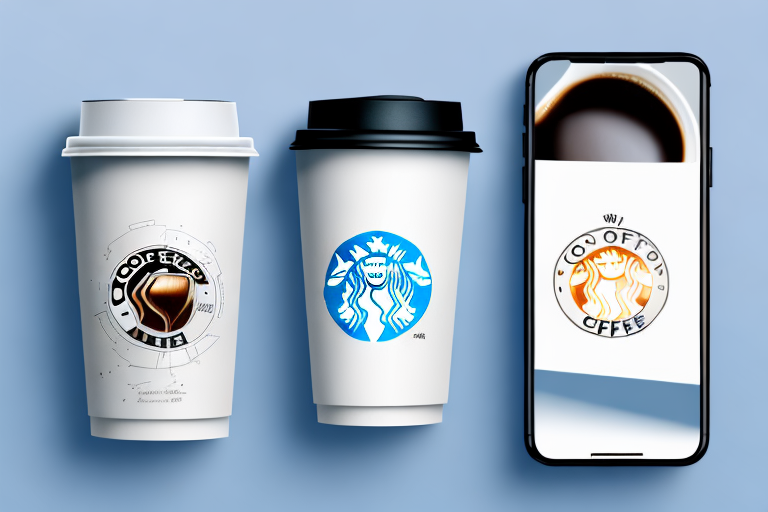Word-of-mouth marketing is a powerful form of collaborative marketing that leverages the influence and reach of individuals to promote a product, service, or brand. This marketing strategy is built on the premise that personal recommendations from trusted sources, such as friends, family, or influencers, have a greater impact on consumer behavior than traditional advertising methods.
Word-of-mouth marketing can be both organic and amplified. Organic word-of-mouth marketing occurs naturally when customers become advocates due to their genuine satisfaction with a product or service. Amplified word-of-mouth marketing, on the other hand, involves deliberate efforts by marketers to encourage and facilitate the sharing of brand messages.
Understanding Word-of-Mouth Marketing
Word-of-mouth marketing is a form of collaborative marketing that relies on the power of personal recommendations. It is based on the idea that people trust the opinions of those they know and respect more than they trust traditional advertising. This makes word-of-mouth marketing a highly effective way to build brand awareness and credibility.
Word-of-mouth marketing can take many forms, from casual conversations between friends to online reviews and social media posts. Regardless of the medium, the key to successful word-of-mouth marketing is creating a product, service, or brand experience that customers want to share with others.
The Power of Personal Recommendations
Personal recommendations are at the heart of word-of-mouth marketing. When a person recommends a product or service to someone they know, they are essentially endorsing that product or service. This endorsement carries a lot of weight because it comes from a trusted source.
Personal recommendations can influence every stage of the consumer decision-making process, from awareness and consideration to purchase and loyalty. They can also help to build and strengthen brand relationships, as consumers are more likely to feel a connection with a brand that has been recommended to them by someone they trust.
Organic vs. Amplified Word-of-Mouth Marketing
Organic word-of-mouth marketing happens naturally when customers share their positive experiences with a product or service. This type of word-of-mouth marketing is often the result of exceptional customer service, high-quality products, or unique brand experiences.
Amplified word-of-mouth marketing, on the other hand, involves deliberate efforts by marketers to encourage and facilitate the sharing of brand messages. This can include strategies such as referral programs, influencer marketing, and social media campaigns.
Strategies for Encouraging Word-of-Mouth Marketing
While word-of-mouth marketing can occur naturally, there are also strategies that businesses can use to encourage and facilitate it. These strategies are designed to create positive brand experiences that customers want to share, and to make it easy for customers to share these experiences with others.
Some common strategies for encouraging word-of-mouth marketing include creating high-quality products or services, providing exceptional customer service, building strong brand relationships, and leveraging social media and other digital platforms to facilitate sharing.
Creating High-Quality Products or Services
The foundation of any successful word-of-mouth marketing strategy is a high-quality product or service. When customers are genuinely satisfied with a product or service, they are more likely to recommend it to others. Therefore, businesses should focus on creating products or services that meet or exceed customer expectations.
Quality can be defined in many ways, from the functionality and performance of a product to its design and aesthetics. Regardless of how it is defined, quality is a key driver of customer satisfaction and a critical factor in word-of-mouth marketing.
Providing Exceptional Customer Service
Exceptional customer service can turn a one-time customer into a loyal brand advocate. When customers feel valued and appreciated, they are more likely to share their positive experiences with others. This can lead to increased brand awareness, improved brand reputation, and ultimately, more sales.
Customer service extends beyond the point of sale. It includes every interaction that a customer has with a business, from the initial inquiry to the after-sales support. Therefore, businesses should strive to provide exceptional customer service at every touchpoint.
The Role of Social Media in Word-of-Mouth Marketing
Social media has revolutionized the way that word-of-mouth marketing is conducted. It has provided a platform for customers to share their experiences with a much wider audience, and has given businesses new ways to engage with their customers and encourage word-of-mouth marketing.
Through social media, businesses can create and share engaging content that encourages interaction and sharing. They can also monitor and respond to customer feedback, and leverage the influence of social media influencers to reach a larger audience.
Creating and Sharing Engaging Content
Creating and sharing engaging content is a key strategy for encouraging word-of-mouth marketing on social media. This content can take many forms, from informative blog posts and how-to videos to entertaining memes and interactive quizzes.
The goal of this content is to engage customers and encourage them to share it with their own followers. This can help to increase brand awareness, generate leads, and drive traffic to a business's website or online store.
Leveraging the Influence of Social Media Influencers
Social media influencers are individuals who have a large and engaged following on social media. They are often seen as trusted sources of information and can have a significant impact on consumer behavior.
By partnering with influencers, businesses can reach a larger audience and leverage the trust that these influencers have built with their followers. This can lead to increased brand awareness, improved brand reputation, and more sales.
Measuring the Effectiveness of Word-of-Mouth Marketing
Measuring the effectiveness of word-of-mouth marketing can be challenging, as it often involves tracking conversations and interactions that occur outside of a business's direct control. However, there are several metrics that businesses can use to gauge the impact of their word-of-mouth marketing efforts.
These metrics include referral traffic, social media engagement, online reviews and ratings, and customer surveys. By tracking these metrics, businesses can gain insights into the reach and impact of their word-of-mouth marketing efforts, and make informed decisions about how to improve their strategies.
Referral Traffic
Referral traffic is the number of visitors that come to a website from direct links on other websites. This can be a good indicator of the effectiveness of a business's word-of-mouth marketing efforts, as it shows how many people are visiting the website as a result of personal recommendations.
Businesses can track referral traffic using tools like Google Analytics. By analyzing this data, they can identify which sources are driving the most referral traffic, and focus their efforts on these sources.
Online Reviews and Ratings
Online reviews and ratings are another important metric for measuring the effectiveness of word-of-mouth marketing. They provide a direct measure of customer satisfaction and can influence the purchasing decisions of other consumers.
Businesses can monitor online reviews and ratings on platforms like Google, Yelp, and social media. They can also encourage satisfied customers to leave reviews, as this can help to increase their online visibility and credibility.
Conclusion
Word-of-mouth marketing is a powerful form of collaborative marketing that leverages the influence and reach of individuals to promote a product, service, or brand. By understanding the principles of word-of-mouth marketing and implementing strategies to encourage it, businesses can build strong brand relationships, increase brand awareness, and drive sales.
While word-of-mouth marketing can be challenging to measure, businesses can use metrics like referral traffic, social media engagement, online reviews and ratings, and customer surveys to gauge the impact of their efforts. By tracking these metrics, businesses can make informed decisions about how to improve their word-of-mouth marketing strategies and achieve their business goals.
Collab with brands and creators. Request your invite at collabs.io



